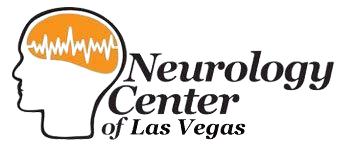MIGRAINES Q&A
MIGRAINES
There are all kinds of headaches. Some are due to sinus trouble. Others result from exposure to an allergen. A mild headache can cause minor discomfort and fade away fairly quickly. On the other hand, when your pain is significant, disabling and tending to last for hours or days, it’s likely to be a migraine. If you’re a person to whom this sort of thing happens often, board-certified neurologist and clinical neurophysiologist Dr. Shanker Dixit can help.
BEFORE THE MIGRAINE BEGINS - PRODROME
As early as one or two days prior to a migraine’s onset, physical and neurological changes may occur that are almost too subtle to notice but often serve as a warning.
- Food cravings
- Constant yawning
- Excessive thirst
- Mood swings ranging from exhilaration to depression
Because these signs appear so early, not everyone will recognize them as heralds of the migraine that is getting ready to make an appearance.
THE MIGRAINE AURA
Shortly before the actual pain commences, approximately one-third of migraine sufferers will gradually experience an aura during which blurriness, flashing lights, squiggly lines or blind spots obscure the field of vision. Sensations of weakness, numbness and tingling can also occur, and you may have difficulty speaking or have the sensation that someone invisible has reached out and touched you.
Not everyone will experience an aura. For those that do, the symptoms generally appear up to an hour before the migraine headache itself begins and often fade away soon after it starts.
DURING THE MIGRAINE ATTACK
Migraines will frequently present with a distinct set of characteristics, including:
- Severe pain in the head, many times one sided, but can involve the entire head. People rate it an 8-10 on a scale of 10!
- A throbbing or pulsating sensation
- Extreme sensitivity to and inability to tolerate light or sound
- Nausea and vomiting may accompany migraines
Migraines usually last a few hours, but at times can last for days. While some people experience migraine headaches only rarely, others suffer from this several times a month.
WHEN THE MIGRAINE HEADACHE ENDS
While the tendency to suffer from migraines may be genetic in origin, the actual triggers can vary. In women, fluctuating estrogen levels can often play a role. Other troublemakers can include:
- Processed foods
- Aged cheeses
- Food additives, particularly aspartame and monosodium glutamate
- Alcoholic drinks
- Bright lights and strong smells
- Stress
The actual triggers are not written in stone and will vary from one person to another.
TREATING THE MIGRAINE HEADACHES
The widespread prevalence of migraine has led to the development of various treatments and medications. While some are designed to stop the progression of a migraine in its tracks, others take a preventative approach. As a board-certified neurologist with extensive experience in the diagnosis and treatment of migraines, Dr. Dixit will make a full assessment of your headache history and carry out a complete neurological examination to rule out any potential physical causes.
He will then draw up an individualized treatment plan specifically designed to treat your particular set of symptoms. This may involve the use of medications, nerve blocks, and Botox therapy. Dr. Dixit understands that no two migraine sufferers are alike and that the treatment plan that helped your neighbor may do nothing at all for you. Don’t allow recurring migraines to continue upending your life. Take advantage of a recognized neurologist’s expertise and call Dr. Dixit today for an appointment.
